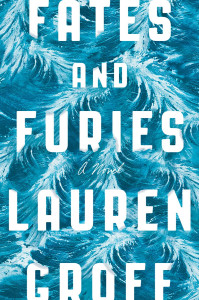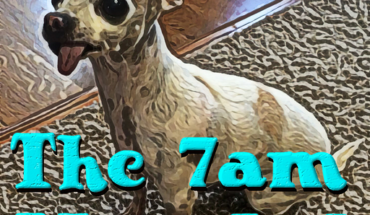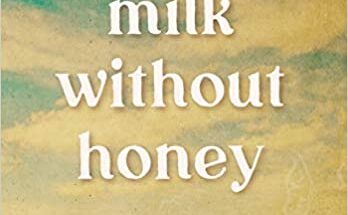 Lauren Groff’s Fates and Furies elbowed out some of its competition last Wednesday when the National Book Award announced its 2015 finalists, but of any writer I know, I don’t expect such adulation to go to Groff’s head. I first met Lauren at the Bread Loaf Writers’ Conference where she was a fellow and I had somehow earned the nickname “Buffy the Copy Machine Slayer” in my role as conference office staff. She seemed too grounded and friendly for the kind of stature her writing had already achieved—an award-winning story collection and novel, The Monsters of Templeton. The collection’s title story, “Delicate Edible Birds,” is a permanent fixture on my fiction workshop’s reading list due to the fluidity of its point of view, the kind of character development achieved by the lightest strokes of detail, and its use of a true historical figure as the source for its imagination. Monsters has a different voice altogether—playful, searching, walking a fine line between fantasy and realism. Here’s the mind-tingling opening:
Lauren Groff’s Fates and Furies elbowed out some of its competition last Wednesday when the National Book Award announced its 2015 finalists, but of any writer I know, I don’t expect such adulation to go to Groff’s head. I first met Lauren at the Bread Loaf Writers’ Conference where she was a fellow and I had somehow earned the nickname “Buffy the Copy Machine Slayer” in my role as conference office staff. She seemed too grounded and friendly for the kind of stature her writing had already achieved—an award-winning story collection and novel, The Monsters of Templeton. The collection’s title story, “Delicate Edible Birds,” is a permanent fixture on my fiction workshop’s reading list due to the fluidity of its point of view, the kind of character development achieved by the lightest strokes of detail, and its use of a true historical figure as the source for its imagination. Monsters has a different voice altogether—playful, searching, walking a fine line between fantasy and realism. Here’s the mind-tingling opening:
The fog was still deep when Dr. Cluny found the monster on his morning row. I imagine how it went: the slide of the scull’s knife across the lake, the oar heads casting rings on the water, the red bow light pulsing into the dark. Then, sudden, looming over the doctor’s shoulder, an island where there had never before been an island, the vast belly of the dead beast. Gliding backward, the old doctor couldn’t see it. He neared; the bow-ball of his boat pushed into the rubbery flesh like a finger into a balloon; the pressure of boat versus skin reached a tensile limit without piercing anything; the boat checked its bow-ward motion, and jerked to stern. The doctor turned, but he was prepared only for the possible, and didn’t at first know what was before him. When he saw the large and terrible eye still milking over with death, the good doctor blinked. And then he fainted.
Groff’s work has continued to challenge whatever box readers might want to put her in. Her second novel, Arcadia, was considered one of the top 100 novels of 2012 by the New York Times and one of the top ten by the Christian Science Monitor, among plenty of other “best of 2012” lists. The book’s recreation and dissolution of a hippie commune as seen through the eyes of a boy is both a beautiful and gritty commentary on idealism. Released in September, Fates and Furies is her fourth book. I don’t think there’s a soul in the book world who hasn’t yet heard of this novel, let alone not read it, though Lauren herself once considered it “unpublishable.” Some use the most simplistic of terms in describing the story: “it’s about a marriage.” Others have christened it a “literary” Gone Girl. But Fates and Furies has higher pursuits in mind. With its allusions to Greek Myth, its vanishing line between fairytale and contemporary mystery, and the kind of sentences that snap a reader to attention, the novel begins like a hurricane—both literally and figuratively—and just keeps roaring. For this interview, Lauren begged off discussing her latest, confessing that she was “already tired of talking about it.” I understand. How many interviews can one of the year’s most written-about novelists do without simply repeating herself? She wanted instead to talk about the craft. This too is part of Groff’s charm—her generosity with other writers as well as her unwillingness to wave her own flag. The below therefore touches on F&F quickly, then moves to her thoughts on writing, publishing, and the creative process as a whole. Here we go.
The New York Times referred to the style of Fates and Furies as “pyrotechnic.” It has a breathless quality, as if the book had to be written. How did you achieve this?
I sometimes think that writing is a matter of understanding your own massive flaws and coming up with ways to trick yourself past them. I would, if I could, spend three weeks on a single sentence. I love the tiny crafting of sentences, the careful and meticulous building, and if I had my druthers, I would only play with sentences all day. But that’s a very difficult way to write a book, and I’ve had to come up a way around that impulse to just be the creepy word-frotteur all day. One way I’ve discovered, through painful trial-and-error, is to write my first few drafts in longhand, swiftly, and throw them out without rereading them. This way I can deal with the structure, the foundation, the larger choices, and go deeper into the characters draft by draft, until I know the story so intimately that I can at last relax into the work of tidying sentences. And then when the book is “finished” to my mind, I force myself to cut it by 20%, because that level of editing can show you the frequent mistakes you make and the lazy formulas you fall into by accident.
That hazy idea of being “finished” is a constant source of bafflement and anxiety to so many of my students. I never quite know what to say when they ask, “How can I tell when it’s done?”
You are never, never, never finished with a book. I don’t give my books to anyone to read until I feel as if they’re somewhat all right to be read, which means that nobody sees the first or tenth drafts before they’re done. The things that allow me to show them to other people is running into an impasse where I have this thing I’ve been working on forever, and I’ve gotten it to the point where I can’t see it anymore and don’t know how to fix it. That’s when I give it to other people for help. In truth, though, no novel is finished because no novel ever written has been perfect, and that’s the way it should be.
And yet, there are some books that feel imperfect from the start. You’ve mentioned that you believed Fates & Furies was “unpublishable.” What made it different from other works that you’ve left behind?
Oh, it’s no different, at most phases of my work it’s all unpublishable, but the difference between my published fiction and my unpublished fiction is just that I had the willpower to start over and over again with the published stuff. It’s also a matter of time. There are some stories and novels I’ve started that I haven’t been able to finish because I haven’t been able to find the best way to tell the story, or I haven’t lived long enough, or I haven’t had the tools yet to do it. I wanted badly to talk about privilege and marriage and drama and storytelling, and I loved the characters in Fates & Furies, and having those things to cling to pushed me to the last draft.
That’s a lot of haven’ts. How do you get yourself through those difficult moments? What are they really about?
The most difficult moments have all come when I’ve believed I’m entitled to something and fate comes along to whap me upside the head and remind me that I am entitled to exactly nothing, that nobody owes me their time or attention or money or love, no matter how desperately I want it all. I have to make a constant effort to remind myself that anything that comes to me should be unexpected, and received with gratitude.
But the best moment in my life as a writer was the sonic boom in my head that happened one day when I understood I wasn’t a total piece of garbage for not being able to write for a few months straight—I’d been berating myself so much that I was probably too depressed to pick up a pen—and then the understanding came that nobody can write endlessly, that some people need a little time to spend fallow, that it was totally ok to just show up at the desk, be unable to pick up a pen, and read. That was freedom.
Gratitude and easing up on yourself. What other writing advice would you give to all those writers out there?
The best piece of advice is everybody’s best piece of advice: show up every day, keep yourself healthy and sane, don’t succumb to despair, read beautiful books, and know that our lives are not endless, and that the joy in the moment when writing is happening well is everything.
The worst piece of advice is to stop and take up candlemaking instead.
You’ve got kids, a husband, a full life. How do you manage your time to “show up every day”?
I wake up at 5:30, work over coffee for an hour, go to the gym or run or swim, eat breakfast, shower, get to work and quit around one, when I have lunch and do the business side of things: email, Twitter, book reviews, etc. I pick up my children from school, some days ferry them to swim team or piano, make dinner, and strictly enforce a no-electronics-at-the-table rule. My husband or I put them to bed. Then it’s reading, asleep usually by 9. My life is regular and boring. Some days, I’ll sit down, be unable to work, and will just clean all day instead, or read, or give up and take myself out to lunch. Endless work isn’t healthy. The brain needs down-time too.
So many of our GrubStreet students spend hours in the office before they have a chance to sit down to write, and sometimes they’re juggling kids, parents, job, and house. What might you tell them to make it through?
I feel like a traitor to my own feminist ambivalence about marriage (the institution) by saying that the only way that I could possibly have written four books and had two children in the past ten years is because I married a kind, generous, sane, and liberated man who picks up the slack and knows when to pay the bills. It’s so retrogressive—god!—but true. Stability helped me. Not having a lot of stuff in my life to worry about, living in a quiet place with very few other writers, not feeling the daily pressure of striving that others feel in their more urban lives—all of these things have helped create a warm little bubble that lets me dream on paper all day.
There are thousands of writers vying for the golden ticket of publication, readership and serious attention. What part of the process might they not expect?
I think it’s good to remember that publication and attention, while evidence of luck and (usually) hard work, are only fleeting moments of joy. The day after publication, when you wash the glitter and champagne off in the shower, you still step out the very you that you were before you were published, with all of your flaws and fears. I’m so happy to have been published well, but I’m now aware, after four books, that publishing can’t fix the parts of me that are broken or bruised and that it’s useless to put faith in them to do so. The true joy is in the writing. Whatever you can do to feel that joy and wonder when you look at the page will allow you to go on.
Has a writer and his/her work ever broken your heart?
A writer or two will break my heart every month. That’s the glory of writing, and the reason I read fiction. A real writer will put it all out there, will put something real of herself in your hands, and if you come across this work at the right time, it will ring all the bells for you and you will fall in love with that little piece of that other person. It’s intellectual promiscuity, and sometimes leaving a great story or book will make you devastated that you can’t go back to that moment again where you met this other person and connected. I cried in the middle of Lucia Berlin’s A Guide to Cleaning Women, because I knew the author was dead and I felt as though I’d lost a friend.
What do you consider your purpose as a writer? What can you do on the page that no one else does?
The only purpose I have as a writer, as I see it, is to try to tell the truth as much as I possibly can, in a way that’s as beautiful as I can make it. I don’t know that I can do anything on the page that other people don’t do. There’s so much din in the world already, and there are so many ways to distract ourselves. That said, I think that there’s a deep longing in human beings to connect with other human beings, to break through our own essential existential loneliness, and some people have been able to connect to the tone that my writing makes. I’m beyond grateful for this.



1 comment